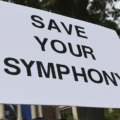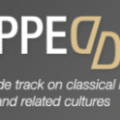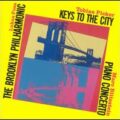Mar 1, 2011
Is Classical Music Dying?
A segment of the blogoshere is filled with discussion these days about what’s happening to classical music, often emphasizing the precarious financial condition in which professional classical music organizations currently find themselves.
The National Endowment for the Arts (NEA) 2008 Survey reports that attendance at concerts has declined. This should not surprise us. Our society has not been training classical music appreciators in any great numbers in the classroom or elsewhere. The percentage of the US population that might be characterized as “hardcore” classical music devotees is also aging, according to the NEA. And the recession makes it difficult for those inclined to buy tickets to afford them – this without even touching on the increased competition for our leisure time created by devices such as programmable televisions and PC’s.
We read of the Honolulu Symphony’s Chapter 7 demise, Louisville Orchestra’s Chapter 11 filing and the recent cancellation of the remainder of the Detroit Symphony Orchestra’s 2010-11 season. But it must be also noted that other orchestras are somehow riding out this difficult time. It really depends on where you live.
We must be mindful of the economic premise on which all professional classical music performance in the USA is based. It boils down to this. . .are there enough philanthropically inclined individuals in your town desirous and able to annually contribute the 50%-80% gap between ticket revenue and the actual cost of producing the concerts? This is a frightening business model even under the best economic conditions. But in the scenario described above, as a friend recently noted, we have what is perhaps “The Perfect Storm” in which some classical music entities are going down – hopefully not forever. The larger question is: Can we sustain this model of financing professional classical music concerts into the indefinite future? The jury is still out.
But as for the music itself and the manner in which it is presented, there is also endless talk about what’s wrong with classical music. “It’s too old! It’s too Eurocentric! It’s not visual enough! It needs giant screen projections like popular music concerts. Symphony orchestra members should dress down in jeans!” For two decades, all manner of window-dressing ideas have been suggested and implemented to alter the presentation of professional classical music concerts. To date, none of these measures appears to have slowed the steady decline in attendance or attracted many newcomers.
I find the argument about the age of a piece of music to be one of most specious. If you saw a necklace and really liked it, wanted it, and price was not a consideration – would it really matter if it had been crafted in 2011, 1954, 1736 or the year 300 BCE? It is totally irrelevant when a work of art is created if it speaks to us – and that has much more to do with our “aesthetic conditioning” than the work of art itself.
Is classical music dying? I’d like to think that were there just one human being left on the planet who was moved by this music, the flame would still flicker. Thankfully, there are yet many appreciators. But we must not kid ourselves – most of the US population remains largely uninvolved with this music because they simply don’t know how affected by it they could be! Are there effective pathways to reach and encourage more individuals to become avid, daily classical music listeners? And not because we might save symphony orchestras at this time – which sadly may be beyond our grasp – but for the life-changing effect it will have on the individuals themselves! This is the quest of The Discovery Orchestra.







